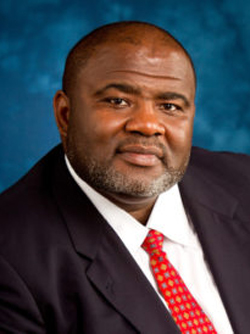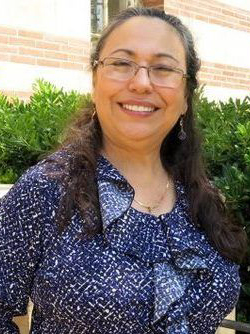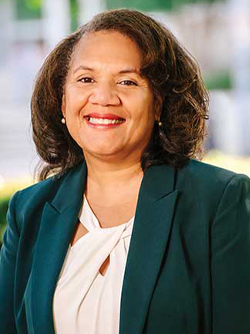EXTERNAL ADVISORY BOARD
Our six-member External Advisory Board will remain active for the entirety of the project to provide oversight, feedback, and guidance to support iterative quality improvement of all processes, including (1) guidance in team composition and stakeholder involvement to ensure representation of those affected by our work, (2) oversight and evaluation of the research components, and (3) support in interpreting and translating research findings into recommendations that can be implemented particularly in STEM fields where underrepresentation of women and faculty of color continues to be most severe.
We ground our project’s strengths in principles of inclusive excellence, which extends to the external advisory board in this project. Our EAB members are recognized experts in racial equity in the academy who have advanced racial equity and dialogue around eliminating racism and advancing racial equity on a national and local level in the academy and beyond. Additionally, our EAB members have advanced an understanding of and advocacy for women in the academy, accounting for intersectional identities in their study of gender in academia, which is vital expertise for ensuring that our grant captures the voices at the intersection of race and gender. The board includes chaired professors, deans, and ADVANCE program directors.
Dr. Kimberlee Shaumann (UC Davis)
Dr. Victoria Plaut (UC Berkeley)
Victoria Plaut, a social and cultural psychologist, is Vice Provost for the Faculty and Claire Sanders Clements Dean’s Professor of Law at UC Berkeley. Dr. Plaut’s research on diversity, culture, and inclusion aims to address the challenges and opportunities of working, living, and learning in diverse environments; it also aims to incorporate empirical psychological research related to issues of diversity and culture into the design of organizations. Her recent projects include studies related to inclusion and belonging in the workplace and educational settings, diversity climate, diversity resistance, colorblind vs. identity-conscious models of diversity, and gender and racial diversity and recruitment, among others. She also has a related line of work on cultural psychology, including cultural models of success, self, well-being, relationship, and law. Dr. Plaut's work has appeared in the leading journals in her field. Her research has been supported by the National Science Foundation, the National Institutes of Health, and the Spencer Foundation. Dr. Plaut’s research has been publicized nationally and internationally, and she has consulted on diversity issues for a range of clients including school districts, universities, corporations, and health care organizations. Plaut earned a bachelor’s degree from Harvard University, a master’s degree from the London School of Economics and Political Science, and a doctoral degree from Stanford University.
Dr. Miguel Quiñones (University of Richmond)
Dr. Miguel (Mickey) Quiñones is Dean and Professor of Management at the Robins School of Business at the University of Richmond. He is an award-winning teacher and internationally recognized expert in the areas of individual and organizational development as well as the strategic management of human capital. Dr. Quiñones received his B.S. in psychology from Texas A&M University and his M.A. and Ph.D. in industrial and organizational psychology from Michigan State University.
Prior to joining the Robins School, Dr. Quiñones served on the faculties of Southern Methodist University, the University of Arizona, and Rice University. He was also a U.S. Fulbright Scholar and Visiting Professor at the Pontificia Universidad Catolica in Santiago, Chile and a visiting professor at Singapore Management University as well as the IE Business School in Madrid, Spain.
Dr. Quiñones is a Fellow of the American Psychological Association and the Society for Industrial and Organizational Psychology.
Dr. Robert Sellers (University of Michigan)
Dr. Robert Sellers is the Charles D. Moody Collegiate Professor of Psychology and Education at University of Michigan. A native of Cincinnati, Ohio, Dr. Sellers attended Howard University where he earned All-America honors in football. After graduating cum laude with a B.S. in psychology in 1985, he went on to earn a Ph.D. in personality psychology from the University of Michigan in 1990. Following his graduate work, Dr. Sellers served as an Assistant and an Associate professor in the Department of Psychology at the University of Virginia. In 1997, Dr. Sellers returned to the University of Michigan to continue his research and teaching. He served as Department Chair from 2011-2014. From July 2014 to August 2022, Dr. Sellers served as the Vice Provost for Equity and Inclusion, Chief Diversity Officer at the University of Michigan. As Vice Provost for Equity and Inclusion & Chief Diversity Officer, Dr. Sellers was responsible for the development, supervision and implementation of the University’s first five-year strategic plan for diversity, equity, and inclusion. The strategic plan has proven to be among the most influential models of culture change in higher education.
As a scholar, Dr. Sellers’s primary research activities focus on the role of race in the psychological lives of African Americans where he and his students have developed a conceptual and empirical model of African American racial identity. He is a past President of the Society for the Psychological Study of Culture, Ethnicity, and Race. He is also a fellow of the American Psychological Association as well as the Association for Psychological Science (APS). Dr. Sellers has won several awards throughout his career including the APS James S. Jackson Lifetime Achievement Award for Transformative Scholarship, the American Psychological Foundation Gold Medal Award, Distinguished Scholar Award from the Society for Personality and Social Psychology, The Theodore Millon Mid-Career Award in Personality Psychology, and the Kenneth and Mamie Clark Award for Outstanding Contributions to the Professional Development of Ethnic Minority Graduate Students by the American Psychological Association, and the Association for Psychological Sciences Mentor Award.
Dr. Sylvia Hurtado (UCLA)
Dr. Kecia Thomas (University of Alabama-Birmingham)
Dr. Thomas is an expert in the psychology of workplace diversity who relishes her scientist-practitioner identity. Her scholarship and institutional engagements focus on the issues of strategic diversity recruitment, diversity resistance (especially in STEM workplaces), and understanding the career experiences of marginalized workers like high potential women of color (e.g. Pet to Threat). This latter work has been discussed widely in a number of media outlets including the New Yorker’s Vulture blog, Forbes magazine, Brene Brown’s Dare to Lead podcast, and the podcast, Therapy for Black Girls.
She is the author of over 60 peer-reviewed articles and book chapters as well as the first I/O diversity textbook, Diversity Dynamics in the Workplace (Thomson Wadsworth). Thomas has also edited six scholarly volumes including, Diversity Resistance in the Workplace vol. 1 & 2 (Taylor-Francis/Routledge) and Diversity Ideologies in Organizations (Routledge). Her research has been funded by federal agencies, for-profit and non-profit institutions, and corporate foundations. She is an elected-Fellow of the American Psychological Association and the Society for the Psychological Study of Culture, Ethnicity and Race. In 2009 she became the 3rd Black American and first Black woman elected Fellow of the Society of I/O Psychology. That same year she also received the Janet Chusmir Award for Distinguished Service from the Academy of Management.
Kecia has served on the national change team for the NSF-funded Aspire, the national alliance for inclusive and diverse STEM faculty in addition to supporting the important diversity work of the National Academies of Science (NACEM), the American Association for the Advancement of Science (AAAS) and the White House Office of Science and Technology Policy (OSTP).
Dr. Abby Stewarts (University of Michigan)
Dr. Abigail Stewart is the Sandra Schwartz Tangri Distinguished University Professor Emerita of Psychology and Women's and Gender Studies at the University of Michigan. Throughout her distinguished career, she has been a leading figure in the fields of psychology, gender studies, and higher education, with a particular focus on issues of institutional change, diversity, equity, and inclusion. Dr. Stewart’s research has explored political activism, lifespan development, and the impact of social history on individual and collective experiences.
Dr. Stewart has held numerous leadership roles at the University of Michigan, including past director of the Women’s Studies Program, the Institute for Research on Women and Gender, and the university’s ADVANCE Program, which she led from 2002 to 2016. In addition, she served as associate dean in both the College of Literature, Science, and the Arts and the Rackham Graduate School, shaping policies to enhance diversity and support academic growth for all students and faculty.
A graduate of Wesleyan University, Dr. Stewart earned an M.Sc. in Social Psychology from the London School of Economics and a Ph.D. in Psychology and Social Relations from Harvard University. Her scholarly contributions include a number of influential articles and books, including An Inclusive Academy (MIT Press, 2018), coauthored with Virginia Valian, and Gender, Considered: Feminist Reflections across the U.S. Social Sciences (Palgrave/Macmillan, 2020), coauthored with Sarah Fenstermaker.
Throughout her career, Dr. Stewart has been committed to advancing research and dialogue on gender, social justice, and institutional transformation. Her leadership and scholarship have had a lasting impact on the academic landscape, particularly in the areas of gender studies, diversity, and the promotion of inclusive academic environments.
OUR COLLABORATORS
OREGON STATE UNIVERSITY PROMOTION & TENURE IN INNOVATION & ENTREPRENEURSHIP COMMITTEE








